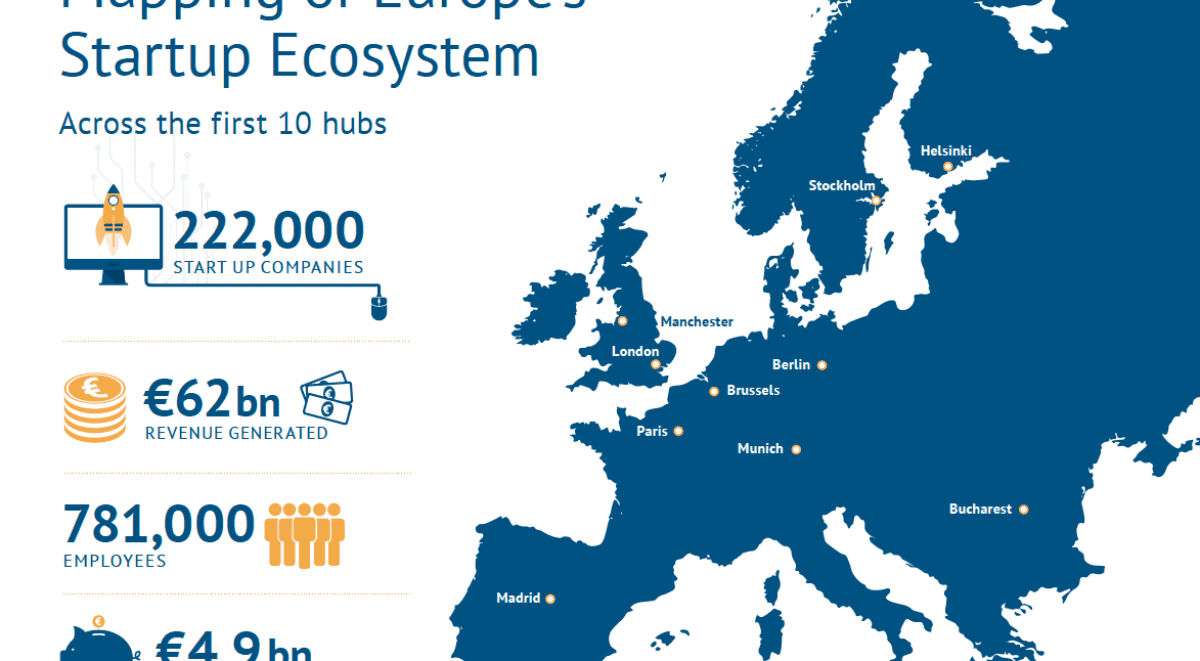
Long reviled as being ultra-conservative in doing business, Europe now plans to throw a serious challenge to China and United States in the start-up business.
Last week at a summit, France and Germany pushed the European Innovation Council to fund startups based in Europe. This continent trails far behind the Silicon Valley and Chinese entrepreneurs and venture capitalists. Failure is considered a stigma in Europe and perhaps that is why Europe based start-ups are so less visible in the entrepreneurial world.
Notwithstanding this negative perception, Europe still hopes to have its own ‘European Google’ in the years to come.
A paper presented in the summit said, “A joint effort is also needed to further improve the venture capital environment and regulations to allow successful market transfer of breakthrough innovations, as well as the foundation and growth of disruptive deep technology companies in Europe. ”
A 2017 report on start-ups puts Berlin at number 7 and Paris at 11th in global rankings. The top 4 slots are occupied by Silicon Valley, New York, London and Beijing respectively. Bangalore occupies the last position at Number 20.
Both the countries aim to create a network that will enable breakthrough innovations in science and marketplace. Later, this network will be extended to other countries in the continent.
France and Germany want that their individual initiatives should be complemented by the other EU nations in order that significant value additions can be reaped later.
Paris has committed more than USD 1.75 billion to reverse its brain drain in the area of Artificial Intelligence. It also hopes to catch up with the start-ups based in Beijing and the United States.
Hottest start-up sectors in Europe
In this context, it would be instructive to look up at some of the most attractive start-up sectors in Europe.
- Internet of Things- Connected devices will continue to dominate the start-up activity in Europe, There are many consumer and social applications of IoT and a few Europe based companies are really doing some terrific work in this area.
Cleverciti, uses connected devices like cameras and sensors to tell the motorists about available parking spaces in cities. Drone Hopper, a Madrid based startup uses connected devices to find out locations of wild fire and shares this information with the Fire Department. It has already raised USD 4 million and now plans to launch in the United States. Another interesting startup is SigFox, based in France, which uses lighter infrastructure to launch Wi-Fi services.
2. Fintech- Cryptocurrencies obviously lead the Fintech sector here. But there are startups that are offering their services to blockchain and crypto-currency players. For example, Ledger, a London based start-up provides secure hardware wallets, and crypto-asset management solutions. A Finland based company, Zervant, however has decided to stay clear of the crypto-currency market and focus upon providing invoicing solutions to freelancers and other small businesses.
3. Artificial Intelligence- Like the rest of the world, European companies are also leveraging AI for their business. Opening.io is an Ireland based startup that helps recruiters take the right recruitment decisions using Machine Learning. Another startup, Babylon also uses Artificial Intelligence to help doctors arrive at correct diagnoses. This company raised USD 60 million last year and connects patients and doctors via its mobile app.
Useful links
